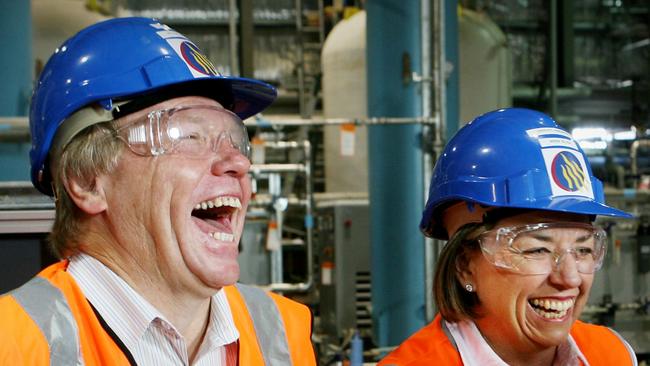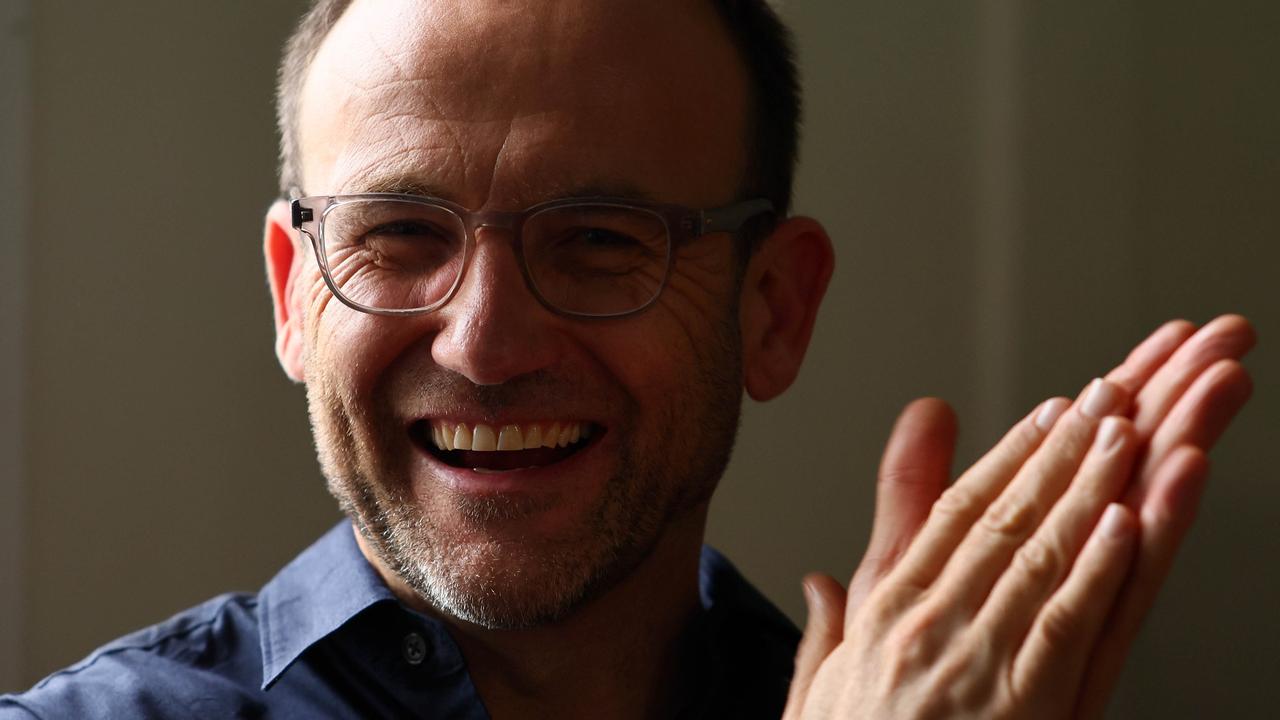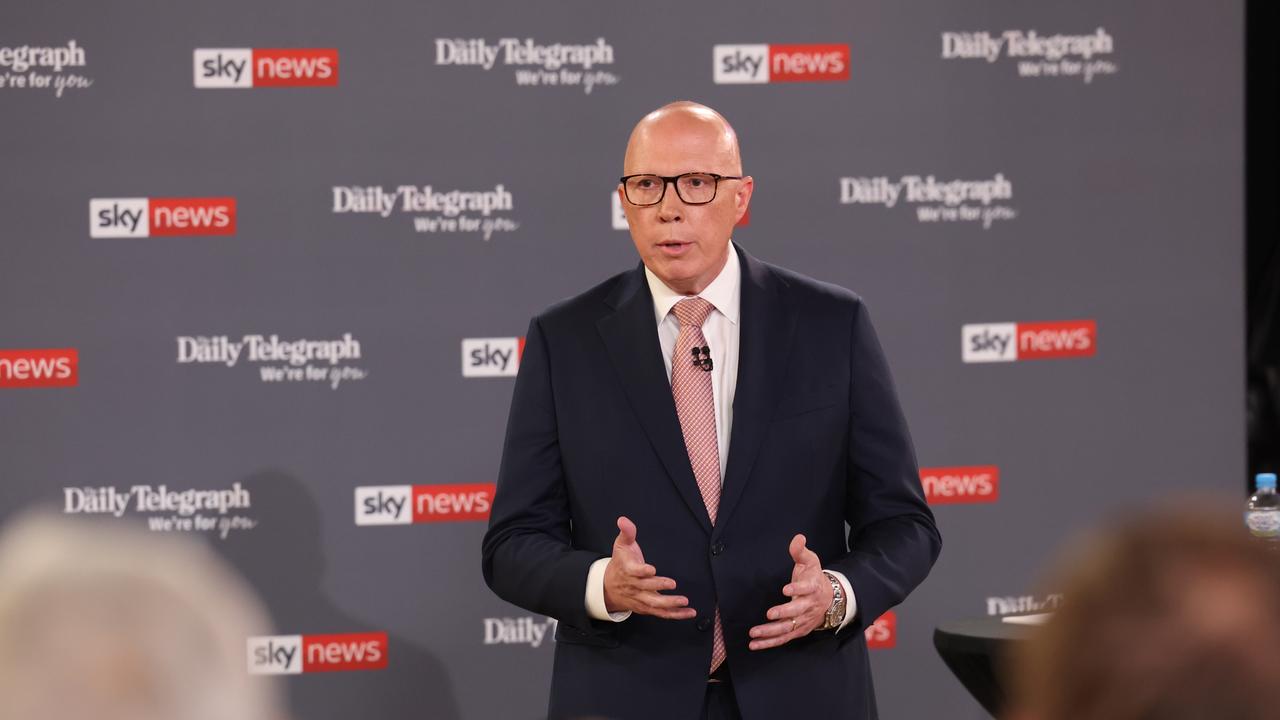Queensland desalination plant stirs water bill surge fears
Southeast Queensland residents could be slugged an extra 15 per cent on their water bills if Annastacia Palaszczuk’s cabinet decides to build a new desalination plant.

Southeast Queensland residents could be slugged an extra 15 per cent on their water bills if Annastacia Palaszczuk’s cabinet decides to build a new desalination plant rather than use recycled water in the region’s drinking supply.
A new report, handed to government last month, warns an alternative water source is needed a decade earlier than predicted because of rapid population growth and new climate change modelling.
The state government’s bulk water supply authority, Seqwater, floats the permanent use of recycled water in the region’s drinking supply as well as a new desalination plant on the Sunshine Coast.
The report is yet to be publicly released but is understood to propose recycled water as a permanent source of up to a quarter of the southeast’s drinking supply.
The issue is on the “priority list” for cabinet consideration when it reconvenes later this month.
Recycled water – wastewater or sewage disinfected and treated to become purified drinking water – was rejected by Toowoomba residents in 2006, during the height of the millennium drought.
Multiple sources have told The Australian Ms Palaszczuk prefers the desalination plant option and is keen to avoid public debate on the permanent use of recycled water after the controversy in Toowoomba.
Construction costs for a new desalination plant have been estimated at between $4bn and $8bn and would jack up water bills by at least 15 per cent.
One Labor source said there was “no question” recycled water made sense.
“But it really depends on what the opposition does,” the source said. “If they’re opportunistic and campaign against it, then it’s really dangerous (politically).
“There’s some sensible LNP people who support it in local government.”
Another Labor source said the government was keen to” minimise the cost flow to households as much as possible”. “But we will have to weigh it all up with any need for new infrastructure.”
Peter Beattie’s Labor government built the $2.5bn Western Corridor Recycled Water Scheme during the last drought, but it has never been used for drinking.
Although the scheme provides some water for industry, it was largely placed into care and maintenance in 2013.
Under current water policy, the trigger to introduce recycled water into the drinking supply is when dam levels hit 40 per cent.
It would take about two years to recommission the network of recycled water treatment plants, but would be largely cost-neutral.
Stuart Khan, a UNSW professor in the school of civil and environmental engineering, said recycled water would be cheaper and less energy-intensive.
“The operational costs can often be double for a desal plant compared to a recycled water plant,” he said.
“I think the fiscally responsible decision is to proceed with the purified recycled water scheme.”
Professor Khan said capital costs had already been sunk into building the recycled water scheme, which can supply up to 180 million litres a day into Wivenhoe Dam, Brisbane’s main source of drinking water.
“Three advanced water treatment plants have already been built, as well as the interconnecting pipelines and the pipe to deliver the water to Wivenhoe Dam,” he said. “It’s just a matter of, as they say, flicking the switch and turning it on.”
Seqwater data shows producing drinking water from the existing Gold Coast desalination plant costs about $640 a megalitre compared with the Western Corridor scheme’s $540 a megalitre.
At the Mount Crosby plant, where water from the Brisbane River is turned into drinking water, it’s about $151 a megalitre.
Brisbane Lord Mayor Adrian Schrinner told The Australian in October that Brisbane needed a new permanent water source before the 2032 Olympics. “I’m agnostic about whether that water source is another dam, desalination plant or recycled water.”
Opposition Leader David Crisafulli does not have a position on desalination or recycled water, but said “we need more water storage infrastructure”.
The WA government last year commissioned a $320m expansion of Perth’s recycled water scheme to double its capacity to 28 billion litres each year.



To join the conversation, please log in. Don't have an account? Register
Join the conversation, you are commenting as Logout